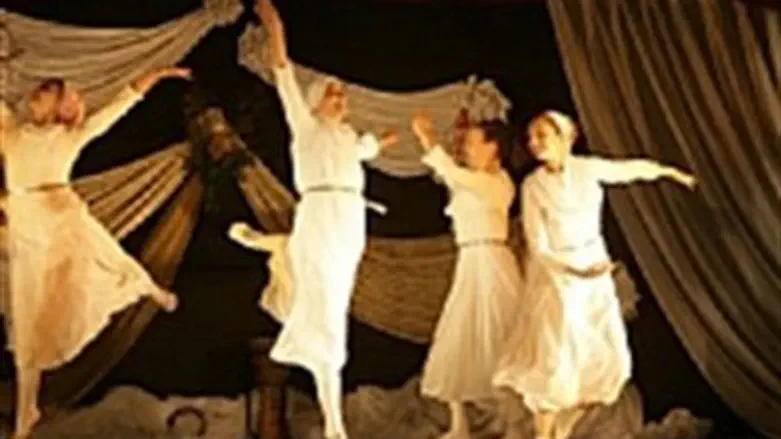
Tu B’Av, the Jewish holiday of nuptials, is on Monday, and it brings with it a unique annual festival in Shilo, located in the Binyamin region, that combines Talmudic tradition with the more modern expressions of dance for women.
The festival renews an ancient tradition brought in the Mishna, written 2,000 years ago, which explains that Tu B'Av is a very festive minor holiday, on which Jewish maidens used to go out to the vineyards to dance wearing borrowed white clothing, so as not to embarrass those who did not have fine garments of their own. The young women would say, "Young man, lift up your eyes and appreciate whom you are selecting [to marry]. Look not at beauty, but rather at the family..."
Avital Horesh, artistic director of the festival, told Arutz Sheva on Sunday the festival aims to be an open house which presents the rapidly growing Jewish dance world.
“This is the third year that we are holding the festival on Tu B’Av, but it’s the first year it will be this big with about 1,000 women expected to attend,” she said.
Horesh, a dance teacher and motion therapist, is married with three children and lives in the community of Kida. She runs the festival along with Michal Weizman.
“The festival program is rich and varied,” said Horesh. “The women will be able to choose two workshops out of ten workshops that are available. The workshops offer a variety of styles - Oriental Dance, hip hop, African dance and more. After the workshops the women will enjoy dance performances and a musical performance of from famous Israeli singers such as Etti Ankri and Mika Karni.”
The idea behind the festival, said Horesh, is “to preserve an ancient tradition of the women who would come out and dance in the vineyards on Tu B’Av. Originally the girls were out looking for a partner, but we take the concept of dancing in the vineyards out of a belief that it creates a connection between man and his wife, between one woman and another and between a woman and herself.”
She added, “The festival connects the ends of the population and is designed for all women, both religious and non-religious. The festival is meant for everyone.”
Horesh added that even religious women who are not used to dancing will find their place in the festival.
“The festival has all kinds of workshops and styles and anyone can find what she likes,” she said. “The workshops are held in small, intimate groups and create a personal atmosphere for each participant.”
She explained that “part of being women is to get to know our body not only through the experiences of pregnancy and childbirth. The festival is the place to get to know the body from a different place. This year more women are signed up. And everything is conducted in accordance with the required rules of modesty.”
Finally, she said, “I feel like managing the festival is a mission. I do it with love and joy. It’s really a dream come true and I promise all who come an unforgettable experience.”
